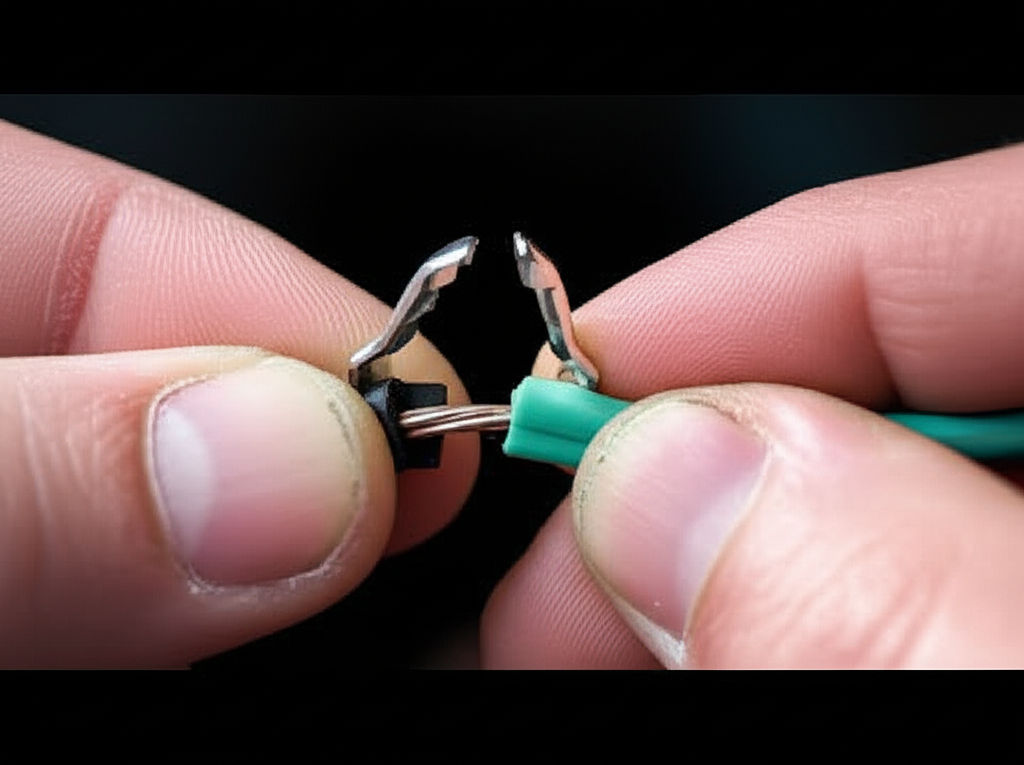Your Rights When Detained or Arrested by Police
Ellie Moore

Photo: Your Rights When Detained or Arrested by Police
Your Rights When Detained or Arrested by Police
Being detained or arrested by the police is a daunting experience for anyone, often leaving individuals confused about their rights and responsibilities. Whether you're facing a brief detainment or a formal arrest, understanding your legal rights can significantly impact the outcome of the situation. This article will guide you through your rights when detained or arrested by police, providing practical advice on how to protect yourself legally and ensure that the process is as fair as possible.
Understanding the Basics of Detainment and Arrest
Before diving into your rights, it's important to understand the key differences between being detained and being arrested:
- Detainment occurs when a police officer stops you temporarily for questioning or to investigate a suspected crime. You are not free to leave during this time, but the detainment should not last longer than necessary for the officer to conduct their investigation.
- Arrest, on the other hand, happens when the police take you into custody based on probable cause that you have committed a crime. At this point, you are no longer free to leave and will typically be transported to a police station for further questioning or booking.
Key Rights When Detained by the Police
When you're stopped by the police, whether for questioning or an investigation, it is essential to know that you still have certain rights. Here are some crucial rights you should be aware of:
1. Right to Remain Silent
You are under no obligation to answer police questions when detained. This right to remain silent is guaranteed by the Fifth Amendment of the U.S. Constitution, which protects individuals from self-incrimination. It's often wise to politely inform the officer that you wish to exercise this right. In some cases, answering questions could lead to unintended consequences, especially if you're not aware of the full details of the situation.
2. Right to Be Informed of the Reason for Your Detainment
Police are generally required to inform you of the reason why you are being detained. If they fail to do so, they may be violating your rights. Always ask why you are being stopped or detained, and make sure the officer provides a clear and lawful reason.
3. Right to Leave After Being Detained
If the police do not have probable cause to arrest you, you have the right to leave once the detainment is over. If the officer cannot provide a valid reason for keeping you detained, you are free to go. It is important, however, to be calm and polite during this process, as challenging the officers might escalate the situation.
Your Rights When Arrested
An arrest is a more serious legal situation than a simple detainment. Once you are arrested, your rights and responsibilities shift. Here's a breakdown of your rights during an arrest:
1. Right to Know Why You Are Being Arrested
Under the Sixth Amendment, you have the right to be informed of the nature and cause of the charges against you. The police must tell you why you're being arrested at the time of your arrest. If you're not informed, ask politely for an explanation. This can help ensure that the arrest is justified and that you are not wrongfully detained.
2. Right to an Attorney
You have the right to legal counsel when arrested. This is known as the Miranda right, and it means that if you're questioned by the police, you can request an attorney before proceeding further. If you can't afford an attorney, one will be provided for you. Always remember, it’s crucial to exercise this right if you're being questioned after an arrest.
3. Right to Remain Silent
Just as you have the right to remain silent during detainment, this right extends through the arrest process. Once you're arrested, you can choose not to answer any questions posed by the police. Your silence cannot be used against you, and it’s often advisable not to speak to law enforcement without an attorney present.
4. Right to Bail
In most cases, after being arrested, you have the right to bail allowing you to leave custody until your trial. The right to bail depends on the nature of the crime and local laws. In serious cases, such as felony arrests, bail might be denied, but for most misdemeanor charges, bail is typically available.
5. Right to Be Treated Humanely
You have the right to be treated with dignity and respect throughout the entire process. This includes protection from physical abuse, torture, or degrading treatment. If you believe that your rights are being violated or that you're being mistreated during an arrest, you can file a formal complaint or seek legal advice afterward.
What To Do if Your Rights Are Violated
While it's essential to know your rights, it's also important to recognize when they are being violated. Here’s what you can do if you believe your rights have been infringed upon during detainment or arrest:
Document Everything
If possible, try to remember every detail of the encounter. This includes the name and badge number of the officers involved, the time, date, and location of the incident, and any witnesses who may have been present. If your rights were violated, this information could be crucial for filing a complaint or building your case later on.
Remain Calm and Polite
Even if you feel that your rights are being violated, always remain calm and polite. Resisting arrest or becoming aggressive with the police can result in additional charges and may escalate the situation. It's better to deal with the violation later through legal channels than to risk further consequences at the moment.
Seek Legal Advice
If your rights were violated, the next step is to seek legal counsel. An experienced criminal defense attorney can help you understand your options and may be able to help you file a complaint, get the charges dismissed, or seek compensation if you were wrongfully detained or arrested.
Practical Tips for Handling Police Encounters
Dealing with police encounters can be stressful, but being prepared and knowing your rights can help you navigate the situation more effectively. Here are a few practical tips:
- Be respectful: Always address officers politely. Avoid confrontations that may escalate the situation.
- Know when to stay silent: If you're uncertain about answering questions, politely say that you choose to remain silent until you have legal representation.
- Record the encounter if possible: In some states, it’s legal to record police interactions as long as you don’t interfere with their duties. This could serve as valuable evidence if you feel your rights were violated.
- Don’t resist arrest: Even if you believe your arrest is unjust, resisting can lead to more severe charges. If you're arrested, let the process unfold and challenge it later in court.
Frequently Asked Questions (FAQs)
1. Can the police search me during a detainment?
The police need probable cause or reasonable suspicion to search you during a detainment. In some cases, a frisk for weapons may be conducted if the officer believes you could be armed.
2. What should I do if I can’t afford a lawyer?
If you can't afford a lawyer, one will be provided for you. You have the right to legal representation under the Sixth Amendment, even if you're facing criminal charges.
3. Can I sue the police if my rights are violated?
Yes, you can file a lawsuit against the police if your rights are violated during detainment or arrest. Consult with an attorney who specializes in civil rights or criminal defense to explore your options.
4. What happens if I am not read my Miranda rights?
If you are not read your Miranda rights during an arrest, any statements you make may be inadmissible in court. However, this does not automatically invalidate your arrest or the charges against you.
Conclusion: Protecting Your Rights
Understanding your rights when detained or arrested by police is critical to ensuring that the encounter is handled legally and fairly. By remaining calm, exercising your right to remain silent, and knowing when to request an attorney, you can safeguard your legal protections. If your rights are violated, it’s essential to document the incident and consult an attorney to address the issue. Your rights exist to protect you use them wisely.
Feel free to leave a comment below if you have any questions or share your experiences with police encounters. For further information, you might find other related articles on legal rights or criminal defense helpful.
Finance & Investment
View All
April 14, 2025
How to Use Yahoo Finance for FreeStop keyword stuffing! Discover how to craft expert SEO content by understanding user intent, prioritizing quality, and genuinely engaging your audience.
Ellie Moore

January 13, 2025
Drive Now Pay Later Car FinancingUnlock higher rankings & engaged readers with expert SEO content. Learn how to craft authoritative, E-E-A-T aligned content that Google loves.
Ellie Moore

October 29, 2025
Yahoo Finance Apple Stock UpdateMaster expert SEO content to boost rankings, engage readers, and build brand authority. Your guide to creating valuable, people-first content.
Ellie Moore

July 5, 2025
DJT Yahoo Finance Market UpdatesDominate search results with expert SEO content. Learn to craft user-centric, authoritative, and trustworthy (E-E-A-T) information beyond just keywords.
Ellie Moore

March 29, 2025
Stock Buybacks: What They Mean for ShareholdersUnderstand how stock buybacks impact shareholders and the market. Learn whether they benefit your portfolio or pose hidden risks.
Ellie Moore

July 7, 2025
Trusted Finance Advisory ServicesMaster modern SEO with expert, people-first content. Understand Google's E-E-A-T & Helpful Content Update to build trust, deliver value, and boost visibility.
Ellie Moore
Insurance
View AllDiscover how microinsurance provides affordable coverage solutions for underserved populations worldwide.
Ellie Moore
Secure your future with Complete Progressive Insurance Protection. Get unrivaled coverage, optimize rates, and achieve peace of mind against risks.
Ellie Moore
Car accidents are costly. Our ultimate guide reveals how to secure comprehensive auto insurance, minimize financial risk, and gain essential peace of mind.
Ellie Moore
Learn how high-net-worth individuals get specialized insurance tailored to unique assets and risks. Discover luxury coverage!
Ellie Moore
Climate change impacts are rising—learn how climate risk insurance offers protection against extreme weather and environmental losses.
Ellie Moore
Is earthquake insurance worth it? Learn about coverage, costs, and risks to make an informed decision for your property.
Ellie Moore
Education
View AllExplore the benefits of hybrid learning models. Learn how to balance online and face-to-face teaching for a more flexible education experience.
Read MoreIs self-directed learning the future? Learn how students can take control of their own education, boost motivation, and achieve better results.
Read MoreEthics in education is vital for balanced learning. Learn how to teach morality alongside knowledge transfer in today’s classrooms.
Read MoreMicro-credentials are on the rise! Discover how they provide fast, focused skills for today’s learners and reshape education.
Read MoreLearn key strategies for creating inclusive classrooms. Discover how to foster equality, engagement, and a sense of belonging for every student.
Read MoreHelp students master metacognition! Learn how teaching students to think about their thinking can improve problem-solving and critical thinking skills.
Read MorePopular Post 🔥
View All
1
2
3
4
5
6
7
8
9
10
Health






Automotive
View All
August 9, 2025
Macomb Automotive Group Service Overview
Discover Macomb Automotive Group: a used car dealership specializing in sales, not auto repair. Explore their inventory & buying process.

July 10, 2025
Top Tips From Expert Automotive Locksmiths
Get expert tips from automotive locksmiths! Your ultimate guide to car key & lock security, covering lockouts, lost keys, and programming.

February 10, 2025
Electric Motorcycles: The Future of Two-Wheel Rides
Are electric motorcycles the next big thing? Explore the latest models, benefits, and how they compare to traditional bikes. Ready to switch gears?

August 19, 2025
How To Use Automotive Wire Connectors Safely
Master automotive wire connectors for safe, reliable, and high-performance vehicle electrical systems. Avoid hazards & ensure peace of mind!

July 13, 2025
Beginner’s Guide To Automotive Primer Application
Master flawless car paint! This guide demystifies automotive primer, covering types & application for stunning, durable finishes. Essential for beginners.

February 15, 2025
Car Auction Guide: Tips for First-Time Bidders
New to car auctions? This guide covers essential tips for first-time bidders, from setting a budget to spotting a great deal. Ready to bid smart?

















